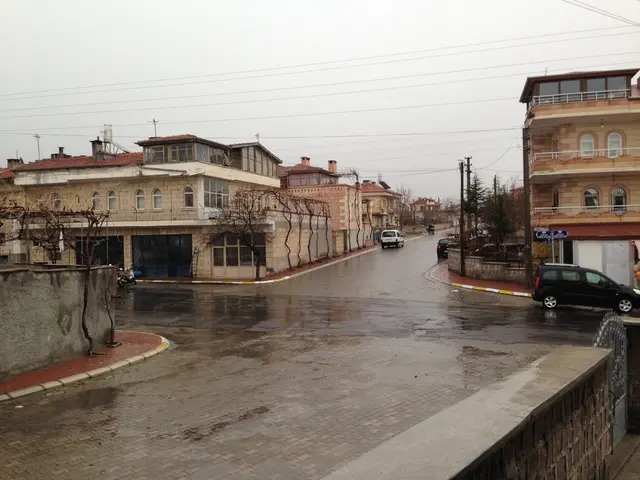**World Championship Riders to Implement GPS Trackers in 2025, Following Muriel Furrer's Tragic Demise**
=============================================================================
In the world of cycling, safety is paramount. Recent implementations of GPS tracking in events like the Tour de Romandie Feminin and the planned use in the Tour de Suisse have demonstrated the technology's effectiveness in improving rider safety and emergency response.
Following the tragic death of junior cyclist Muriel Furrer at the 2024 World Championships, where delayed discovery contributed to a fatal outcome, the Union Cycliste Internationale (UCI) initiated pilot testing of GPS safety tracking at the 2025 Tour de Romandie Feminin. In this test, one rider per team carried a GPS device transmitting their position continuously. This allowed race organizers to monitor riders’ locations live, improving safety oversight and emergency coordination.
The system aims to refine real-time tracking software and communication protocols, provide instantaneous location data to links, medical teams, and commissaires, and ensure the swiftest possible response in case a rider crashes or requires assistance during the race. The approach is supported by SafeR, an organization dedicated to improving race safety, and is expected to be expanded gradually to more races after ironing out operational issues.
The Tour de Suisse was the first race in the world to introduce rider and convoy tracking earlier this year, with riders' bikes fitted with small trackers that sounded an alarm in case of anomalies. The UCI World Championships, taking place in Kigali, Rwanda between 21-28 September, will also implement GPS tracking devices, as previously mentioned.
While some teams initially resisted participating in GPS tracking tests, the UCI has condemned refusals and emphasized the technology’s importance in protecting rider safety. The objective of the test at the Tour de Romandie Feminin is to refine the UCI's safety tracking software and establish protocols.
The UCI's SafeR initiative aims to improve rider safety, and all competitors at this year's World Championships will carry tracking devices. Lappartient, the UCI's president, has expressed openness to implementing GPS tracking in all WorldTour events. The technology will undoubtedly play a significant role in enhancing safety and emergency response in cycling races going forward.
However, it's worth noting that while GPS tracking can help locate riders more quickly, it doesn't eliminate the risk of accidents. As UCI president David Lappartient stated, it's "too early" to say if radios would have made it simpler to locate Furrer. Nonetheless, the implementation of GPS tracking is a step in the right direction towards ensuring the safety of all cyclists participating in major races.
In conclusion, the use of GPS tracking in cycling events is a promising development for improving rider safety and emergency response. Its ongoing adoption and refinement indicate it will become an essential safety tool in major races such as the Tour de Suisse and the World Championships going forward.
Technology in the realm of sports, specifically cycling, is evolving to prioritize safety. For instance, the incorporation of GPS tracking in events like the Tour de Suisse and the UCI World Championships is aimed at enhancing rider safety and facilitating swift emergency response.
In sports, advancements in technology are not only limited to cycling; they extend to various domains, including improving athletic performance and fan engagement. For example, virtual reality experiences can offer spectators an immersive view of the game, while wearable analytics can help athletes monitor and optimize their performance.




